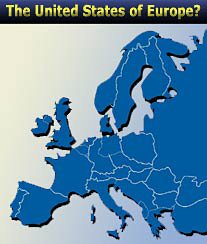EuroQuest This Week: Thinking Big!
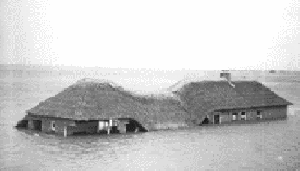 To the right, a picture of a house flooded during the Dutch flood of 1953. A disaster that led to the creation of one of the great engineering marvels of the 20th century, the Delta Plan.
To the right, a picture of a house flooded during the Dutch flood of 1953. A disaster that led to the creation of one of the great engineering marvels of the 20th century, the Delta Plan.This week's EuroQuest theme is "Thinking Big".
Here's the rundown and you can even download the show in high quality at the bottom of this posting.
Segment 1 - Superpower Europe?
The EU can in no way compete with the US when it comes to military might. This is why Rob de Wijk has called for greater security and defense cooperation amongst European nations in a book called: "Europe the Superpower". Here he tells his ideas to Margreet Strijbos.
Click here to learn more about the Clingendael Institute.
Segment 2 - Strengthening Dutch Dikes
Around half of the Netherlands is under sea level, and as such, dike building and maintenance has always had the highest priority. Thijs Westerbeek reports on Dutch diking, starting his report on a dam that was so big it turned a saltwater sea into a freshwater lake.
Click here to learn more about the Delta Works
Segment 3 - France’s Manifesto City
Figures just published in France show the countryside is fast disappearing under concrete. But this is a tendency France’s top architects are determined to counter. And they’ve built a whole new model city to prove it. John Laurenson reports.
Segment 4 - Art Museum in Ceausescu Palace a Great Irony?
Ceaucescu’s Palace is considered to be one of the world’s most controversial monuments to megalomania. So, when the government decided to build the new Museum of Contemporary Art there, it created a small riot in local art circles. Jonathan Groubert reports from Bucharest.
Want to know more about the Palace? Check out the posting from November the 21st.
Please click here to download the full program in high quality.
Comments or violent dissent. As ever, you can leave them here below.
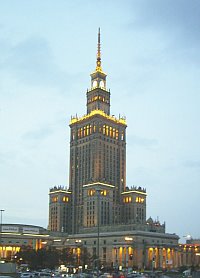
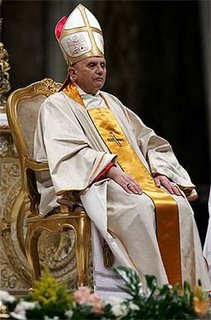
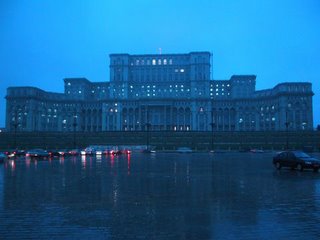

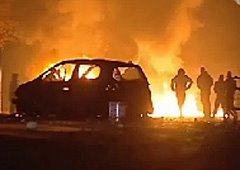 "There's a really close parallel to France," said Harris, who teaches political science at the University of New Mexico. "High unemployment, low family income, inferior education and training, inadequate housing, a great deal of hostility toward the police - we found that the level of hostility in the black sections of these cities was high enough that almost any random spark would set them off."
"There's a really close parallel to France," said Harris, who teaches political science at the University of New Mexico. "High unemployment, low family income, inferior education and training, inadequate housing, a great deal of hostility toward the police - we found that the level of hostility in the black sections of these cities was high enough that almost any random spark would set them off."


